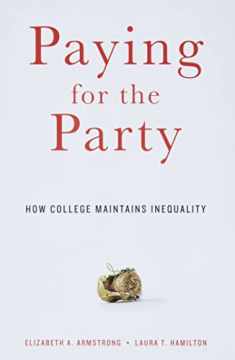
Women without Class: Girls, Race, and Identity
Book details
Summary
Description
In this ethnographic examination of Mexican-American and white girls coming of age in California’s Central Valley, Julie Bettie turns class theory on its head, asking what cultural gestures are involved in the performance of class, and how class subjectivity is constructed in relationship to color, ethnicity, gender, and sexuality. A new introduction contextualizes the book for the contemporary moment and situates it within current directions in cultural theory.
Investigating the cultural politics of how inequalities are both reproduced and challenged, Bettie examines the discursive formations that provide a context for the complex identity performances of contemporary girls. The book’s title refers at once to young working-class women who have little cultural capital to enable class mobility; to the fact that analyses of class too often remain insufficiently transformed by feminist, ethnic, and queer studies; and to the failure of some feminist theory itself to theorize women as class subjects.
Women without Class makes a case for analytical and political attention to class, but not at the expense of attention to other social formations.


We would LOVE it if you could help us and other readers by reviewing the book
Book review





